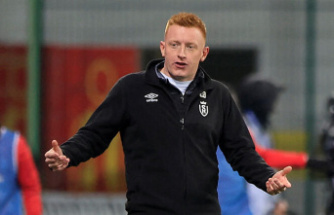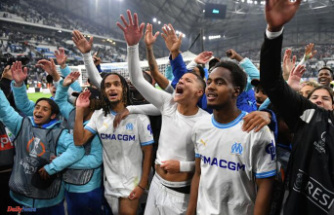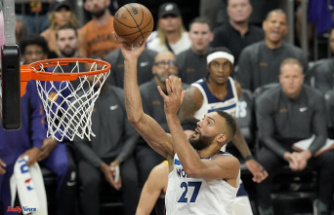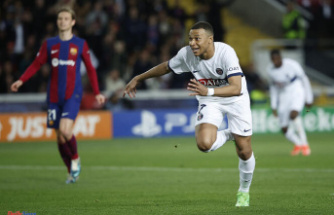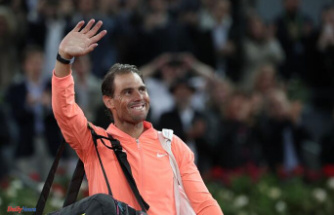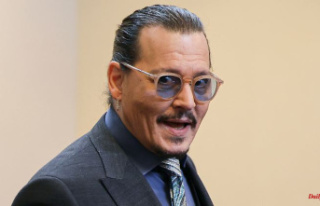Jochen Drees sees a negative development in video evidence in the Bundesliga and is open to changes. This can also include the so-called trainer challenge. Julian Nagelsmann would welcome that. VAR project manager Drees warns of a major weakness.
Bayern coach Julian Nagelsmann would like two improvements in particular when implementing the video evidence in the Bundesliga. The referee on the pitch should generally always have "sovereignty" when making decisions. And from his point of view, controversial scenes such as correct goals, possible penalties or dismissals should be checked more quickly. "In general, I think that if there are clear situations that the referee can see, then the referee should trust himself, make decisions and continue to have sovereignty," said Nagelsmann.
In his view, when the video assistant intervenes, “the screen time must be reduced because everyone gets nervous and the rhythm of a game is totally broken,” emphasized Nagelsmann: “If you look at a situation like this for two and a half minutes, that’s it too long. Then it's just not clear if you need 17 repetitions," argued the Bayern coach. Most recently, there had been an increasing number of blatant wrong decisions in the Bundesliga, which caused a lot of criticism of the video evidence and raised doubts about the cooperation between the referee and the video assistant in Cologne. For example on Friday evening in the duel between Borussia Mönchengladbach and VfB Stuttgart.
"In general, I think the video evidence is good," said Nagelsmann. For the 35-year-old, the use of technology brings "a little more fairness" into play and at the same time reduces the pressure on the referees. "I wouldn't have anything against a challenge to the coach either, because then you would have more responsibility and the referee would be relieved." The VAR would then only be used at the request of a coach. Each team could be provided with a certain number of checking options per half of the game.
Frankfurt coach Oliver Glasner had clearly spoken out in favor of it: "I'm always a friend of innovations. And it's important to see what can be optimized. If I could throw a red flag like in football, I would think that's a good thing." Leipzig coach Marco Rose, on the other hand, threw a return to the roots into the debate. Wrong decisions should be accepted - which would be feasible, "because there are now many".
VAR project manager Jochen Drees showed himself open to changes last week. For example, trainer challenges are "quite conceivable" for the 52-year-old, as he says in the "kicker" format "What's up, Bundesliga?" explained. But Drees emphasizes: "But that would mean that if the team no longer had a challenge, a clear wrong decision might not be corrected."
He sees this "as a weakness, even with that you couldn't eradicate everything". In addition, the league must "bring those responsible at FIFA on board", who, according to Drees, have "a clear rejection of the challenge option". "As a German, you can't say we'll just do it now," but from his point of view it would "definitely be worth considering whether it's worth a try."
With a view to the course of the season, he was "not satisfied" overall, said Drees: "There were a lot of mistakes that we haven't had in recent years." With the "very prominent wrong decision" in Eintracht Frankfurt's home game against Borussia Dortmund (1: 2), the past weekend in particular was "very turbulent". However, the value of the VAR is "tangible" for Drees, he emphasized: "As of now we have almost 50 corrected wrong decisions."


